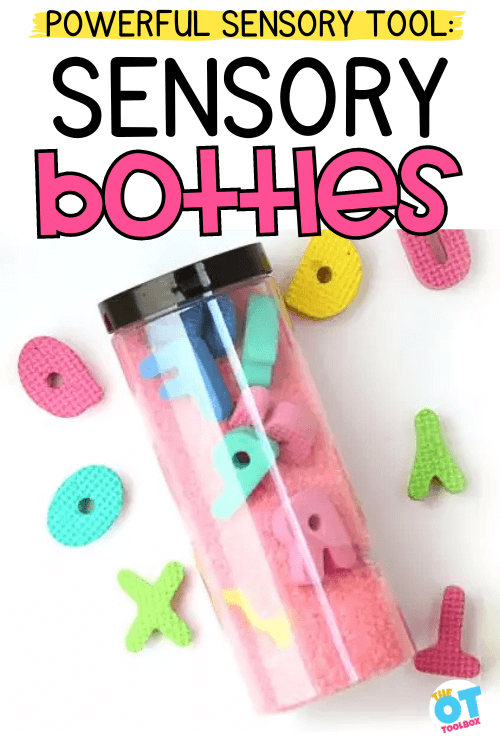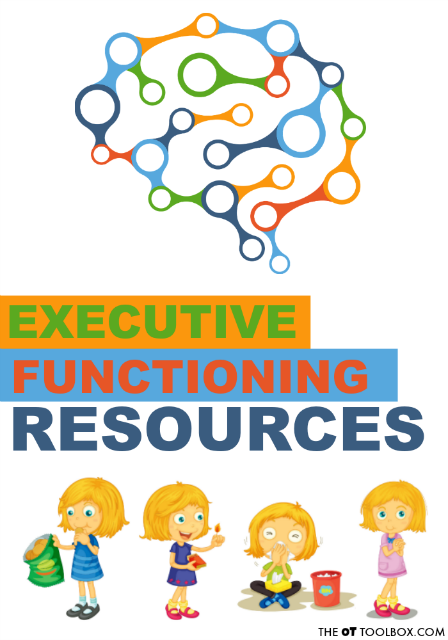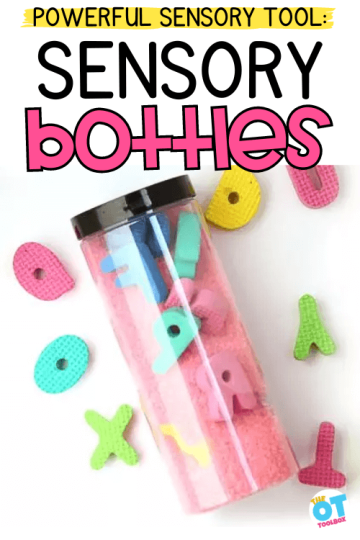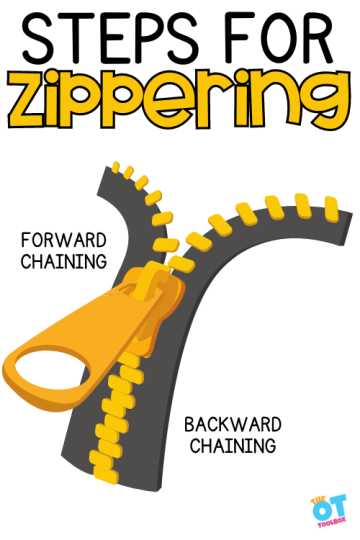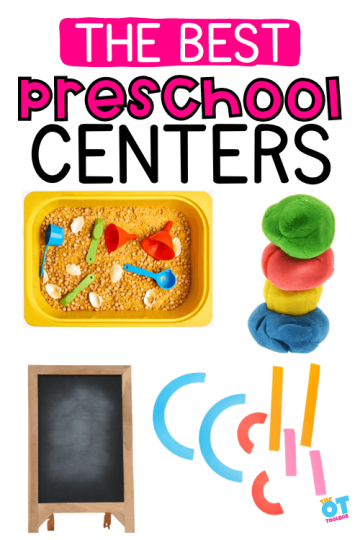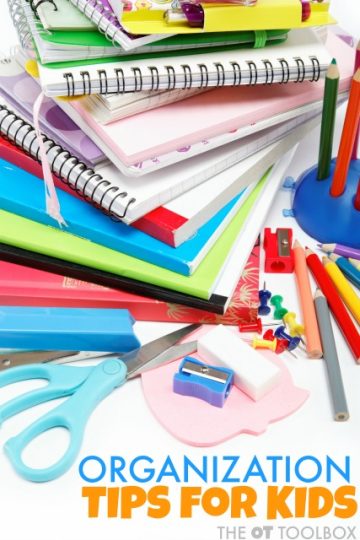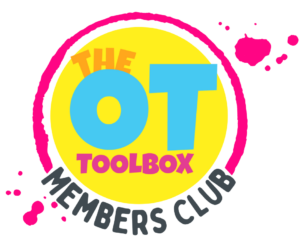Below, you will find a collection of executive functioning resources and tools for improving executive functioning skills that can be used in the home, school, therapy clinic, or anywhere!
This week, we’re about Executive Functioning Skills!
If you follow The OT Toolbox, then you know we have a lot of resources on executive functioning skills. In fact, we even have an Executive Functioning Skills Toolbox Facebook Page! (Follow along for lots of resources curated from around the web!)
Here are strategies to help the adult with executive function disorder. Many of these tips and strategies are great for teens as well.
Let’s start at the beginning:
What are Executive Functioning Skills?
Executive Functioning Skills guide everything we do, from making decisions, to staying on track with an activity, to planning and prioritizing a task. The ability to make a decision, plan it out, and act on it without being distracted is what allows us to accomplish the most mundane of tasks to the more complicated and multi-step actions.
Children with executive functioning issues will suffer in a multitude of ways.
Some kids have many deficits in EF and others fall behind in several or all areas. _Everyone_ needs to develop and build executive functions as they grow. Functional adults may still be struggling with aspects of executive functioning skills. These cognitive skills are an interconnected web of processing that allows for self-regulation, planning, organization, and memory.
Executive Functioning Skills are essential for learning, behavior, and development. All of these skills work together and impact other areas.
Executive Functioning Skills include:
- Emotional Control
- Task Initiation
- Task Completion
- Working Memory
- Planning
- Prioritizing
- Processing Speed
- Organization
- Attention
- Self-Monitoring
- Impulse Control
- Cognitive Flexibility
- Foresight
- Hindsight
- Self-Talk
- Problem Solving
- Persistence
- Shift
Executive functioning skills development begins at a very early age. Click here to read more about executive functioning skill development.
Resources for Improving Executive Functioning Skills
Executive functions are heavily dependent on attention. Read about the attention and executive functioning skill connection and the impact of attention on each of the executive functioning skills that children require and use every day.
Check out these fun games to help improve executive function skills.
Another area of interest to you might be the impact executive functioning skills have on handwriting.
Here are strategies for improving task initiation.
Read about tips for improving working memory.
Here are tons of tips for addressing organization issues at home or in school. These are great for younger kids through adult!
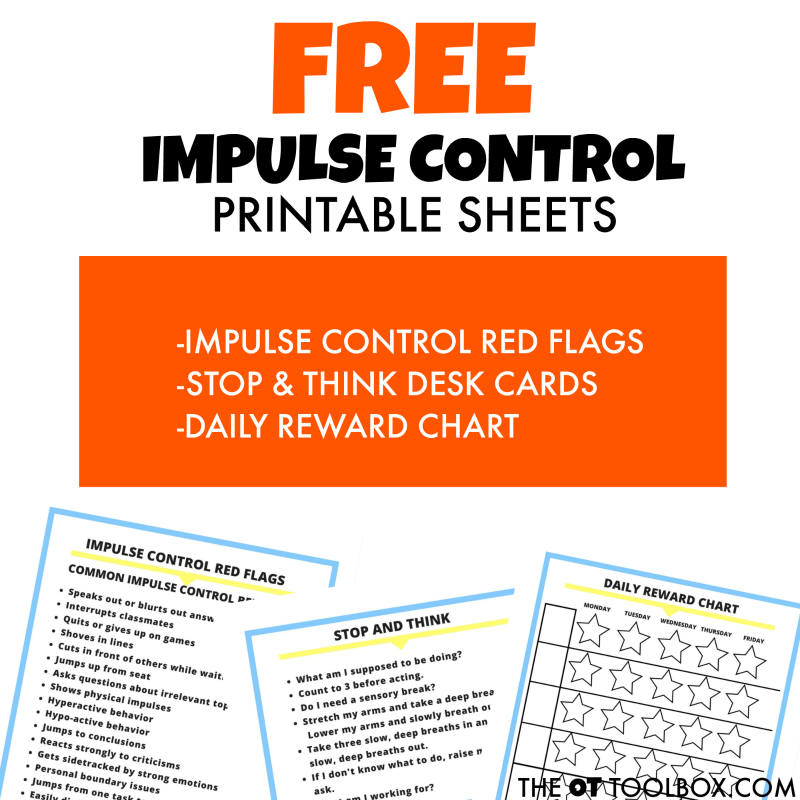
The Impulse control journal is a printable journal for kids that helps them to identify goals, assess successes, and address areas of needs. The Impulse Control Journal is a printable packet of sheets that help kids with impulse control needs.
Read more about The Impulse Control Journal HERE.
The Impulse Control Journal has been totally revamped to include 79 pages of tools to address the habits, mindset, routines, and strategies to address impulse control in kids.
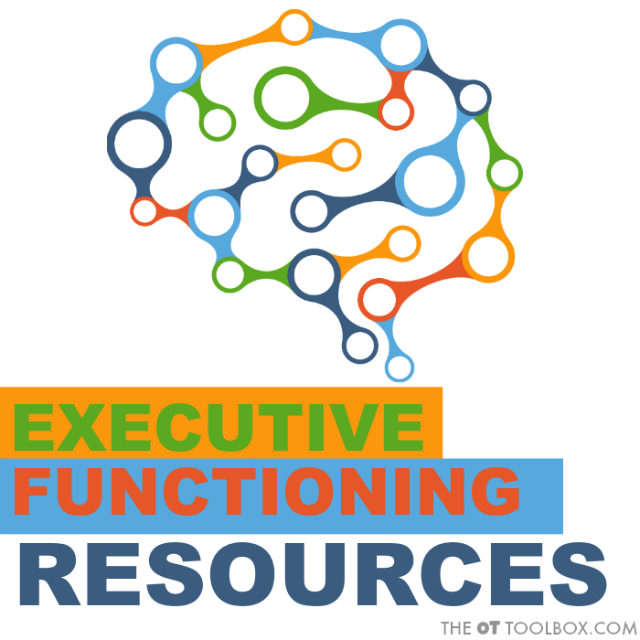
Executive Function Resources
Here are some accessible and user-friendly resources that can be beneficial for individuals, including students and professionals in the field of occupational therapy, to learn more about executive functioning:
- Understood.org – Executive Functioning Issues:
- Website: Understood.org
- Description: Understood.org provides articles, videos, and practical tips on understanding and supporting individuals with executive functioning challenges.
- CHADD – Children and Adults with Attention-Deficit/Hyperactivity Disorder:
- Website: CHADD
- Description: CHADD offers resources on ADHD and executive functioning, including articles, webinars, and support groups. Their resources are helpful for both professionals and parents.
- Smart but Scattered by Peg Dawson and Richard Guare:
- Book: Smart but Scattered (Amazon affiliate link)
- Description: This book provides practical strategies for improving executive skills in children and adolescents. It’s written in an accessible style, making it useful for parents, educators, and therapists.
- The Executive Functioning Workbook for Teens by Sharon A. Hansen:
- Book: The Executive Functioning Workbook for Teens (Amazon affiliate link)
- Description: Geared towards teenagers, this workbook offers engaging activities and exercises to develop executive functioning skills. It can be a helpful resource for both therapists and teens.
- ADDitude Magazine:
- Website: ADDitude Magazine
- Description: ADDitude Magazine provides articles, webinars, and expert advice on various topics related to ADHD and executive functioning. It’s a valuable resource for staying informed on the latest research and strategies.
- National Center for Learning Disabilities (NCLD) – Executive Function 101:
- Ebook: Executive Function 101
- Description: NCLD’s Executive Function 101 article offers an overview of executive functioning and practical tips for supporting individuals with executive function challenges.
These resources are designed to be accessible to a broad audience, and that means that the supports or suggestions won’t be appropriate for every individual. They provide a foundation for understanding and implementing strategies to enhance executive functioning skills.

Colleen Beck, OTR/L has been an occupational therapist since 2000, working in school-based, hand therapy, outpatient peds, EI, and SNF. Colleen created The OT Toolbox to inspire therapists, teachers, and parents with easy and fun tools to help children thrive. Read her story about going from an OT making $3/hour (after paying for kids’ childcare) to a full-time OT resource creator for millions of readers. Want to collaborate? Send an email to contact@theottoolbox.com.
More about the Impulse Control Journal:
- 30 Drawing Journal Pages to reflect and pinpoint individual strategies
- 28 Journal Lists so kids can write quick checklists regarding strengths, qualities, supports, areas of need, and insights
- 8 Journaling worksheets to pinpoint coping skills, feelings, emotions, and strategies that work for the individual
- Daily and Weekly tracking sheets for keeping track of tasks and goals
- Mindset, Vision, and Habit pages for helping kids make an impact
- Self-evaluation sheets to self-reflect and identify when inhibition is hard and what choices look like
- Daily tracker pages so your child can keep track of their day
- Task lists to monitor chores and daily tasks so it gets done everyday
- Journal pages to help improve new habits
- Charts and guides for monitoring impulse control so your child can improve their self-confidence
- Strategy journal pages to help kids use self-reflection and self-regulation so they can succeed at home and in the classroom
- Goal sheets for setting goals and working to meet those goals while improving persistence
- Tools for improving mindset to help kids create a set of coping strategies that work for their needs
Read more about The Impulse Control Journal HERE.

